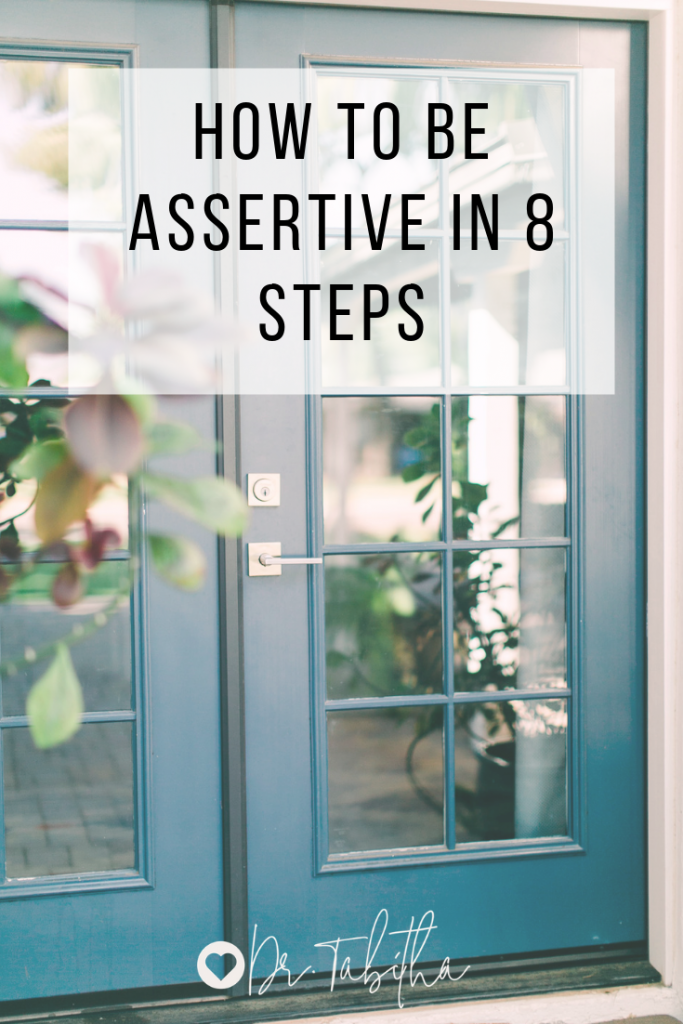
Assertiveness can sometimes have a negative connotation, but what does assertiveness really mean? It means being able to express what we want and need, as well as setting positions and boundaries. It implies speaking up for yourself in a respectful and effective way that facilitates the other person to listen to you. It also includes being able to listen to the other person’s request. This is an important skill to have in a personal and professional level not only to avoid negative feelings but also to attain its multiple benefits. Mayo Clinic highlights the following:
- Increases self-esteem and confidence
- Gain self-knowledge
- Improves communication
- Enhances relationships and job satisfaction
- Helps your ability to make decisions
- Promotes situations that benefit all parties.
On the contrary, not expressing our needs or not setting boundaries may create feelings of resentment and anger that sooner or later come to light, usually through an angry explosion. Another possibility is to never talk, which may result in feelings of frustration and discouragement, increasing levels of anxiety and depression, as well as impacting self-esteem.
How To Be Assertive in 8 Steps
The good news is this is a skill that can be learned, though it requires courage and practice. It may not feel so easy in the beginning but rather uncomfortable. This may be because it is something new and unknown. The first time you assert yourself may not be the best one, and this is ok! Remember it’s a learning process as with so many things in life. The American Psychological Association recommends the following steps to improve assertive communication:
Ask For Feedback
It is important to determine how others see you in terms of assertiveness. Find reliable sources around you to get an objective evaluation. Then, make the necessary adjustments.
Rehearse
This is a skill that needs to be developed. Do you remember the first time you drove a car or a bike? You probably didn’t go to the highway (hopefully) to do that and it may have taken you some time before feeling it was under control. However, you kept doing it over and over until reaching a level were you felt confident about it.
Consider Who You Are Talking To
Cultural differences are important, as it is knowing the customs and beliefs of the other person. So be mindful of this when preparing your speech.
Put Yourself In The Other Person’s Shoes
By doing this, you can assess the best way to get your point across in an empathic but firm way. What is the benefit for the other person in this scenario? How this can be a win-win situation? It is also recommended to make a request as an affirmation instead of asking a question.
Know Yourself
When you are trying to be assertive, get clarity on what you want before saying anything. This may require some internal exploration of your needs and desires. This means being honest with yourself. Ask yourself is this really what I want? Additionally, get some information about what the other party wants and needs. Both of you are important.
Be Positive
Thinking on negative terms won’t help you to get what you want. Make a commitment with yourself and change those thinking patterns to more positive ones. You can do this! You got this!
Use That Strange Word “NO”
Quit slipping a yes. Saying No is also ok! This may be uncomfortable at the moment but could save you from future trouble. It is also a way to set your boundaries. My personal favorite phrase/internal talk for these situations is “I value you so much and this is why I have to say no this time.”
Learn How To Handle Criticism
It doesn’t have to feel good, it just doesn’t. However, you have a choice, getting defensive using blame or justification; or be open and see if there is something to adjustment to better yourself. This is also a great opportunity to practice self compassion.
Now you know how to be assertive and the benefits of assertiveness. What is that need you have inside waiting for you to give it a voice? Go ahead and start practicing!






Leave a Reply
Your email is safe with us.